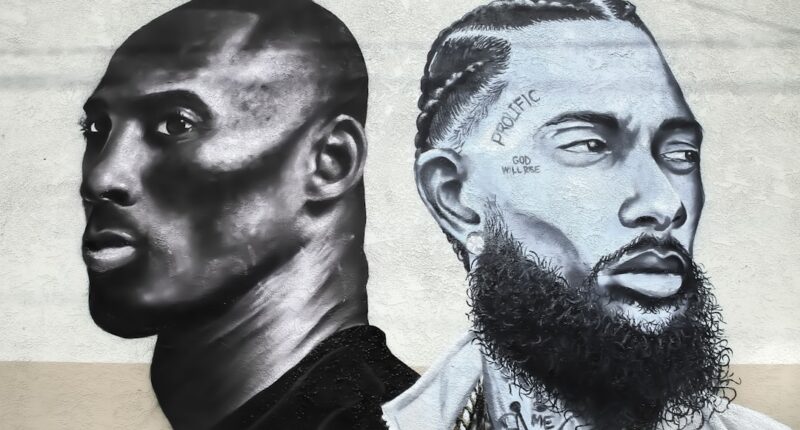Companies and powerful people or groups form strategic alliances known as brand deals. In these agreements, brands pay partners to advertise their goods or services, taking advantage of the partner’s reputation, reach, and influence to establish a genuine connection with target consumers. These partnerships can be in the form of sponsored social media posts, product placements, or endorsements in blog posts or articles, among other things. Usually, the parties to a brand deal negotiate the terms, which include things like the kind and frequency of content, the length of the partnership, and payment.
Key Takeaways
- Brand deals are partnerships where a brand pays an individual or organization to promote their products or services.
- Brand deals can take the form of sponsored social media posts, product placements, and endorsements, with negotiated terms including content type, frequency, partnership length, and compensation.
- User-generated content (UGC) is often a key component of brand deals, leveraging partners’ creativity and authenticity to reach and engage with target audiences.
- Influencers, from celebrities to social media personalities, are sought after for brand deals due to their impact on consumer behavior and purchasing decisions.
- Brand deals offer benefits such as increased visibility, access to new audiences, trust-building, financial compensation, and other perks for both brands and partners.
With this marketing tactic, companies can effectively reach and engage target audiences by leveraging the creativity and influence of their partners. Brands can increase brand awareness, engagement, & sales by partnering with people or organizations that are well-known and credible in particular niches. By doing this, brands can take advantage of their partners’ audience and expertise.
Brand deals are an important component of contemporary marketing strategies because they enable businesses to humanize their campaigns and build more genuine relationships with customers. Conditions of the Joint Venture. The brand & the person or organization negotiate the terms of the brand deal, which usually cover things like the kind and frequency of content, the duration of the partnership, and the financial compensation. For instance, a company might pay a YouTuber to include a product in a video or pay an influencer to produce a string of Instagram posts showcasing the product. Benefits & Remuneration.
Brand agreements can have very different payment structures based on a number of variables, including the partner’s audience and engagement, the kind of content being produced, and the partnership’s exclusivity. Nevertheless, brand agreements are a win-win situation since they let companies leverage the power and reach of their partners to engage and authentically connect with their target market. Partners gain access to monetary compensation and other benefits concurrently, along with the chance to associate with companies that share their goals and values. Getting Significant Outcomes.
| Brand Deal | Definition |
|---|---|
| Brand Deal | A partnership between a brand and an individual or organization to promote the brand’s products or services. |
| How it Works | The brand pays the individual or organization to create content that showcases the brand in a positive light, reaching the audience of the content creator. |
| Metrics | Metrics used to measure the success of a brand deal include reach, engagement, conversion rates, and brand sentiment. |
| Benefits | Benefits for the brand include increased brand awareness, access to new audiences, and credibility through association with the content creator. |
In the end, brand agreements are made to build mutually beneficial relationships that benefit both brands and their partners. Collaboration allows brands and their partners to accomplish shared goals & objectives & forge enduring, solid relationships in the process. As brands frequently look to capitalize on the originality and authenticity of their partners’ content to reach & engage their target audience, user-generated content (UGC) is a crucial part of many brand deals. User-generated content (UGC) can be anything from images & videos to comments & reviews, & it’s frequently posted on social media sites and other online forums.
Using user-generated content (UGC) in marketing allows brands to produce more relatable and genuine content that connects with customers on a deeper level. Through user-generated content (UGC), brands can leverage the originality and relatability of their partners’ content to produce more relatable and engaging marketing campaigns. Employing user-generated content (UGC) allows brands to highlight real-world experiences & partner testimonials, which can foster consumer credibility and trust. Also, user-generated content (UGC) can assist brands in humanizing their marketing initiatives and forging more genuine connections with their target audience. Brands frequently approach influencers for brand deals because they are people who have developed a following and credibility in a specific industry or niche. Influencers can have a big impact on consumer behavior and purchase decisions.
They can be anyone from public figures and celebrities to bloggers and social media personalities. Influencer partnerships enable brands to leverage influencers’ credibility, reach, and influence to engage and authentically connect with their target audience. Influencers are vital to brand deals because they use their credibility and influence to build more genuine relationships with customers. Through collaborating with influencers who possess a substantial fan base within their specialized fields, brands can efficiently connect and interact with their intended audience in a more relatable manner. Because they are able to produce content that appeals to their audience, influencers are a great asset to companies trying to increase sales, engagement, and brand recognition.
Brands and their partners can benefit from a number of brand deals. Brand deals give companies more exposure and visibility, open up new markets and audiences, and give them a chance to gain the confidence and trust of consumers. Brands may effectively reach & engage with their target audience in a more genuine way by working with people or organizations that have a strong influence and credibility in their respective niches.
Also, brand agreements can offer monetary compensation as well as other benefits to the people or organizations involved. Partners can align themselves with brands that align with their goals and values in addition to receiving financial compensation & other benefits from brand deals. Partners are able to produce more genuine content that connects with their audience by collaborating with brands that share their values & identity. Also, by collaborating with brands to reach new audiences, brand deals can assist partners in growing their influence & reach.
Comprehending the terms and conditions. It can be difficult to negotiate brand deals, so it’s critical that partners and brands carefully review the terms and conditions of the agreement. In addition to making sure that the messaging and content support the goals & values of the brand, this entails being aware of the ethical and legal ramifications of brand deals. To prevent any misunderstandings, a formal agreement should expressly state expectations, deliverables, compensation, exclusivity, usage rights, & other pertinent information. Putting alignment, authenticity, and transparency first. Transparency, authenticity, & values alignment are critical factors that partners and brands must prioritize when navigating brand deals.
Potential partners should be thoroughly screened by brands to make sure they share their goals & core values. In a similar vein, partners ought to assess possible brand deals according to how well they fit with their values and personal brand. Establishing Fruitful Collaborations.
Brands and partners can establish fruitful partnerships that yield significant outcomes by placing a high priority on transparency, authenticity, and values alignment. They can gain credibility, trust, and a solid reputation in this way, which will eventually lead to long-term success and expansion. It is probable that brand deals will play a more significant role in marketing and advertising strategies as the digital landscape develops further.
Brands will keep looking to collaborate with people or businesses that have developed a reputation and fan base in their specialized fields. Also, UGC will keep being vital to brand deals by producing more relatable and interesting content, as consumers look for genuine connections with brands. In addition, new developments in influencer marketing—such as long-term collaborations between brands and influencers, the emergence of new social media platforms, and nano-influencers—will also have a significant impact on the future of brand deals. Effectively leveraging brand deals and achieving significant outcomes will require brands & their partners to stay ahead of trends & best practices.
Brands can maintain successful partnerships that resonate with their target audience by keeping up to date with emerging trends in influencer marketing and making necessary adjustments to accommodate changes in consumer behavior.
One interesting article related to brand deals is “The Power of Influencer Marketing in 2021” from ugc.email. This article discusses the growing trend of influencer marketing and how brands are leveraging the influence of social media personalities to promote their products and services. It provides insights into the effectiveness of this marketing strategy and offers tips for brands looking to collaborate with influencers. It’s a great read for anyone interested in learning more about the impact of brand deals in the digital age.
FAQs
What is a brand deal?
A brand deal is a business agreement between a brand and an individual or organization, where the brand pays the individual or organization to promote their products or services.
How do brand deals work?
In a brand deal, the brand and the individual or organization negotiate terms such as the scope of the promotion, the compensation, and the deliverables. The individual or organization then creates content that promotes the brand’s products or services to their audience.
Who can participate in brand deals?
Anyone with a platform, such as social media influencers, celebrities, content creators, and even businesses, can participate in brand deals. The size and engagement of their audience often determine their eligibility for brand deals.
What are the benefits of a brand deal?
For the brand, a brand deal can help increase brand awareness, reach new audiences, and drive sales. For the individual or organization, a brand deal can provide a source of income, access to new products or services, and opportunities for collaboration.
Are there any legal considerations in brand deals?
Yes, brand deals often involve legal contracts that outline the terms and conditions of the partnership. It’s important for both parties to understand their rights and obligations, as well as any disclosure requirements for sponsored content.





